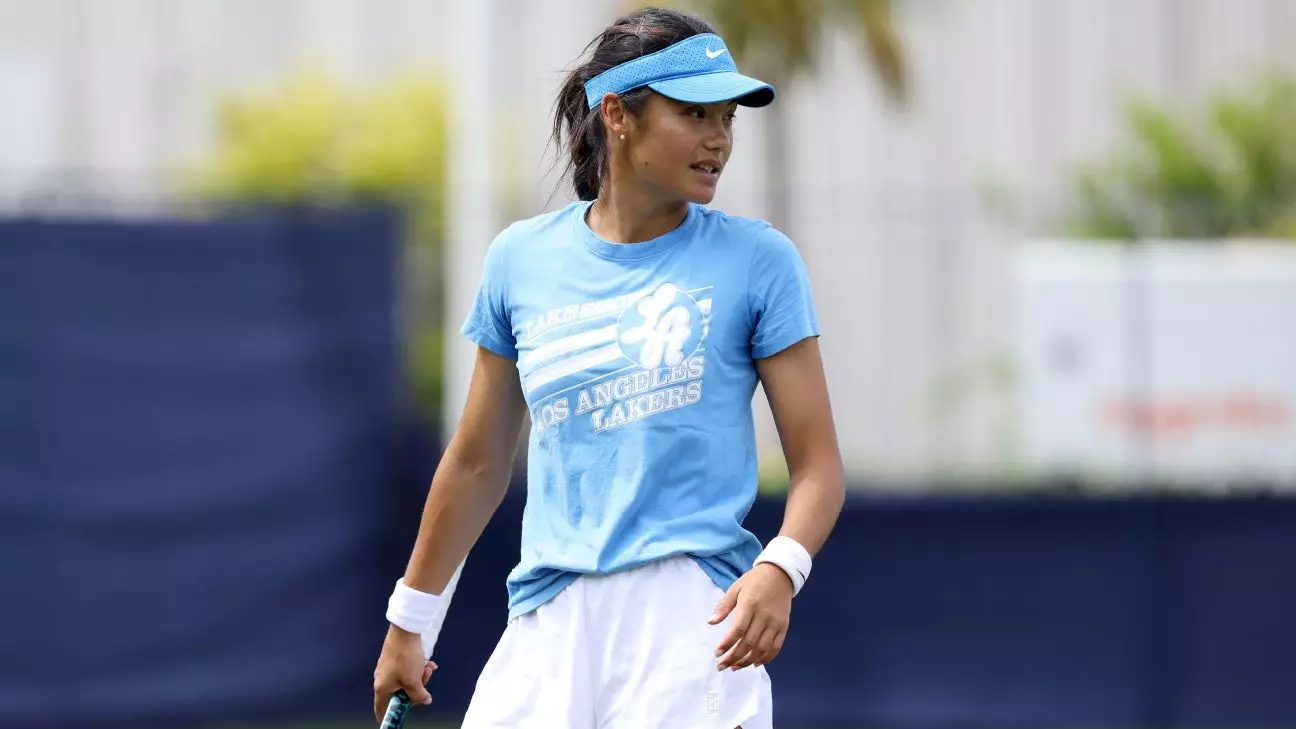Emma Raducanu, the remarkable 2021 US Open champion, recently spoke out about the unsettling realities faced by athletes in the public eye, especially regarding their safety. With the Wimbledon Championships just around the corner, Raducanu’s comments highlighted her experience with an obsessive stalker who followed her through various WTA events across the globe. Such incidents raise critical discussions about safety protocols for athletes, especially female athletes who often grapple with issues that their male counterparts rarely encounter. This scenario exemplifies not just a personal challenge but a systemic one that sports associations need to address.
The Role of Authorities in Athlete Security
Fortunately for Raducanu, immediate action was taken to ensure her safety when Wimbledon officials intervened, effectively barring her stalker from attending the tournament. The proactive measures undertaken by the All England Club illustrate the vital responsibility that sporting institutions have in providing a secure environment for their athletes. While Raducanu expressed gratitude for the quick response, this incident also serves as a stark reminder to sports organizations worldwide about the necessity of implementing robust security measures not only as a reaction to threats but as intrinsic protocols.
A Broader Reflection on Gender Dynamics in Sports
Raducanu’s experiences resonate far beyond her individual situation; they bring to light the broader societal issue of how female athletes are disproportionately targeted. The poignant acknowledgment that both public figures and ordinary women face stalking and harassment amplifies the urgency for dialogue surrounding gender-based safety. In a powerful statement, Raducanu indicated that she understands she is not the first athlete to endure such scrutiny and likely will not be the last. This admission shows the normalization of harassment in sports, which inadvertently reinforces the need for change and advocacy for women’s rights and safety in all walks of life.
Building a Culture of Support and Solidarity
Interestingly, Raducanu’s acknowledgment of fellow athlete Katie Boulter’s experiences with online abuse emphasizes the importance of solidarity among women in sports. By sharing their stories, these athletes not only highlight their struggles but also create a sense of community that encourages others to speak out. It is essential to foster an environment where athletes can feel safe sharing their vulnerabilities because by doing so, they empower one another to seek change. The presence of fellow athletes standing in solidarity against harassment can profoundly impact the culture of sports.
A Call for Comprehensive Policies
As Raducanu prepares to compete at Wimbledon, her situation serves as an urgent call for the implementation of comprehensive safety policies affecting all athletes. Organizations must prioritize the mental and physical well-being of competitors by developing protocols that include not only immediate security measures but also long-term strategies for dealing with stalking and harassment. Recognizing these issues is the first step; taking definitive and actionable steps is essential to forge a safer environment not just for current athletes but for future generations as well.
In a world where public scrutiny often overrides personal privacy, athletes like Raducanu are proving that speaking out can lead to significant changes. It’s a moment that calls for both awareness and accountability—an opportunity for everyone involved in sports to reflect and reconsider the systems in place that impact the lives of athletes.

